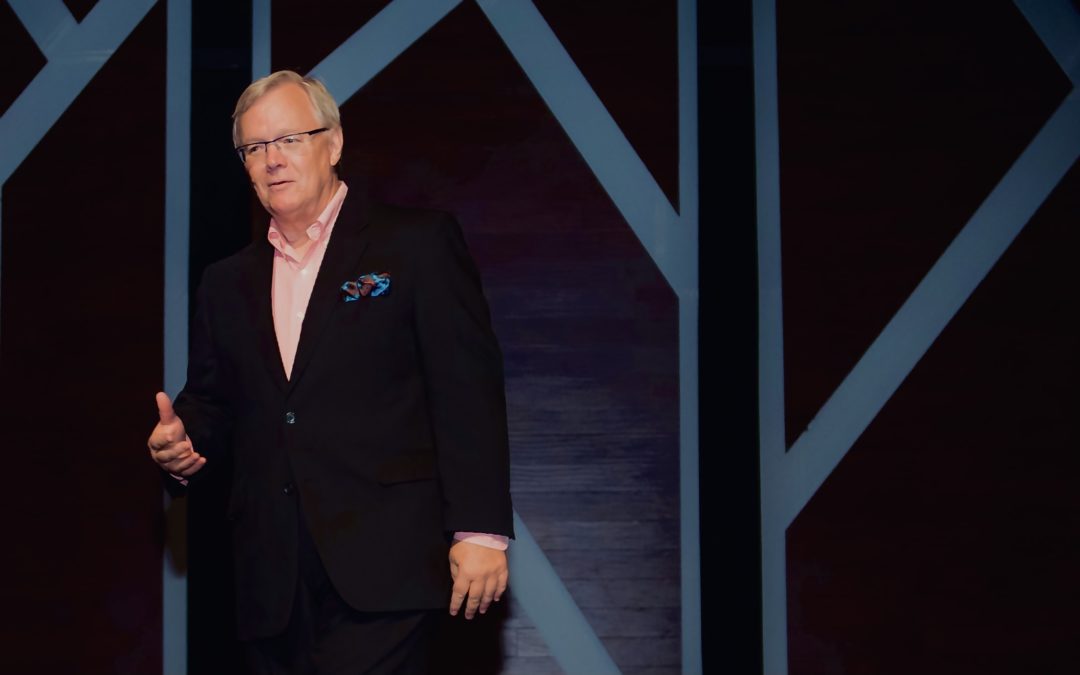
by Dr. Ed Brenegar | Oct 2, 2021 | Book, Circle of Impact, Relationships
Over the last year, I have had a number of disturbing conversations that have effectively ended a number of friendships. It has been a painful experience because I care about these people. I am finding that I am not the only one who has experienced the emotional melt-downs that lead to broken relationships. The problem is that I am not the one having the psychotic break. These meltdowns are an emotional break from reality.
If you were to talk to these friends of mine, I suspect they would tell you that I am responsible. I have been told that I am insane, that I believe in conspiracy theories, which I don’t, and that I am a danger to society, which I am not. I have had phone calls abruptly end in mid-sentence and people tell me that they don’t want to see me. In almost every case, a reasonable explanation of my views is not permitted. If you read this blog or read the books that I have written, you’ll understand my perspective. I want to make sense of the world. In doing so, it means we know how to act in it.
My point here is not to argue my perspective. Instead, I am more concerned with helping people discover their own minds. You don’t have to see things as I do. Hardly anyone does. It is important that you have clear reasons why you make the decisions that you do and take the actions that follow those decisions. You do need this for your own peace of mind. If in the process you find out that you made some decision based on faulty reasoning or inadequate information, you can say to yourself, “Okay. Glad to know that. Let’s fix this.”

by Dr. Ed Brenegar | Feb 18, 2021 | Book, Circle of Impact, Transition, Uncategorized
“Today, at this point in your life, what do you want to change? What is that one thing that has a hold on you, that won’t let go, because it’s calling you to do something about it? What’s stopping you from doing something about it today?

by Dr. Ed Brenegar | Apr 27, 2020 | Book, Circle of Impact, Ideas, Transition
“It is vitally important that we understand what change is. It is the living, dynamic context of our lives. Every thought, every emotion, every action, every response in a particular moment operates within a change context. Every movement, shift in perspective, or initiative taken happens within the context of change. …
I call it the speed of change.

by Dr. Ed Brenegar | Apr 25, 2020 | Brand, Circle of Impact, Impact, Questions, Uncategorized
“It is vitally important that we understand what change is. It is the living, dynamic context of our lives. Every thought, every emotion, every action, every response in a particular moment operates within a change context. Every movement, shift in perspective, or initiative taken happens within the context of change.
Change is so prevalent that we don’t even see it. It is invisible until it becomes toxic or threatening. Then, we see it or feel it so much that we want to get out of it. Change is always present. It is our best friend and our worst enemy.
The skill needed is a recognition that we are always in transition. It is not just a mental note that change is always present. It is seeing precisely what kind of change is happening in the moment. Did I anticipate my clients stepping back from the projects we had planned? I was not surprised. All around me were people I knew whose businesses were in crisis.”
Change is the context of our lives. The question is how do we embrace it.

by Dr. Ed Brenegar | Apr 22, 2020 | Circle of Impact, Community, Transition, Uncategorized
“It’s time to stop talking about leadership, and lead.”
The voice in my head.
One afternoon.
Jackson Hole, Wyoming.
July 1999.
Over the past three and a half decades I’ve lived and worked in the world of leadership. Part of my passion has been the desire to understand the intersection of organizational structure, culture and human nature with the phenomenon of leadership. From early on in my training and study, it was clear that my perception of leadership is different than many who write about it and the practitioners of the leader’s craft.






